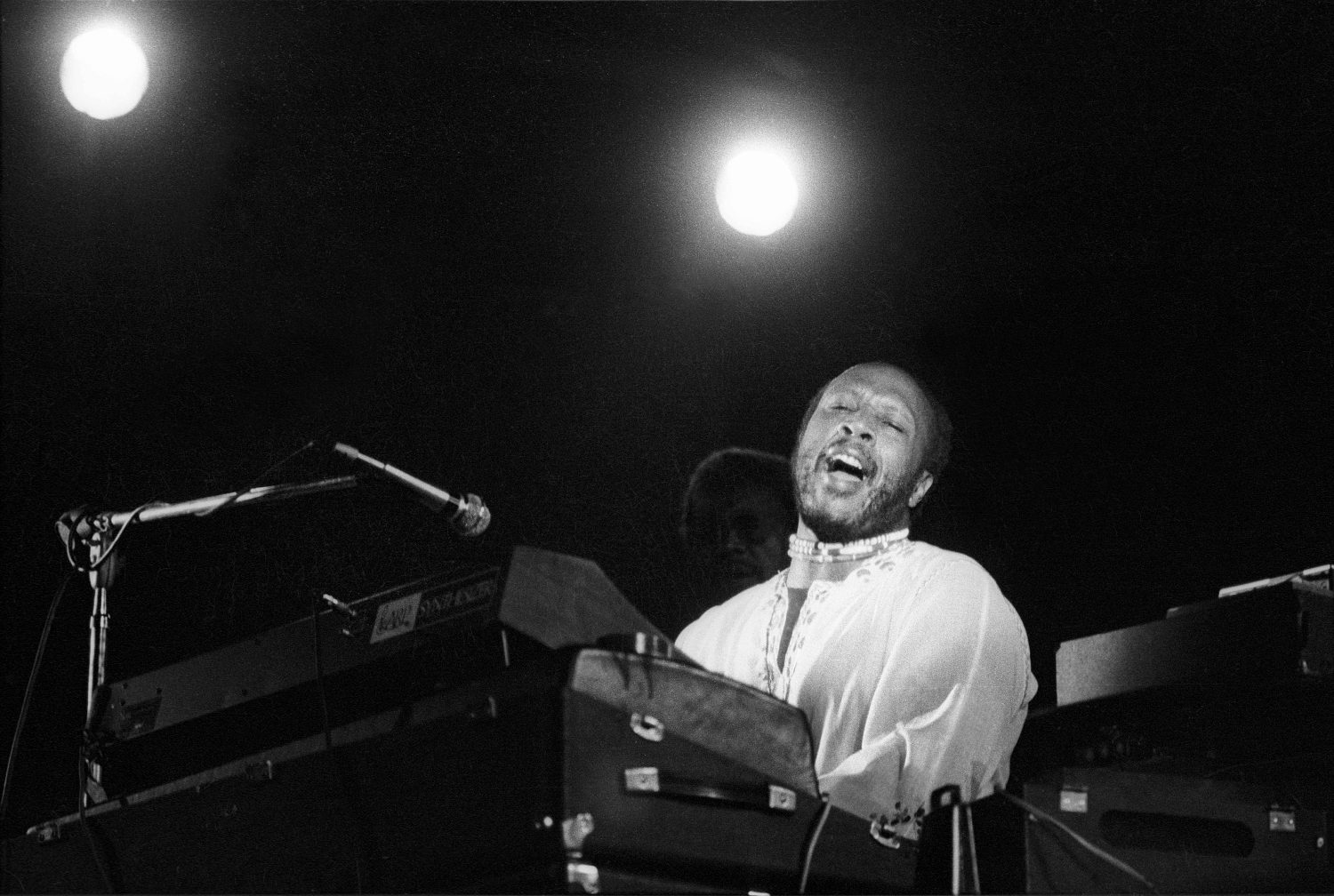
[ad_1]

Les McCann, a jazz titan best known for his performance with musical partner Eddie Harris of the protest song “Compared to What,” has died at age 88, his manager said Sunday.
The cause and manner of death were unavailable. Manager Alan Abrahams said McCann, a piano player and singer, died Friday at a Los Angeles-area hospital after he developed pneumonia roughly one week ago.
McCann was an architect of the soul-jazz sound, helped jazz connect with the counterculture’s protest music and provided a wellspring of material for sample-crazed hip-hop stars, including Notorious B.I.G., Pete Rock and C.L. Smooth, Warren G., Slick Rick, Dr. Dre and A Tribe Called Quest.
“He brought something from the Black church to jazz,” said Abrahams, a prolific producer of gospel albums.
For the September release of “Never A Dull Moment! – Live from Coast to Coast (1966-1967),” a vinyl collection of live performances and accompanying essays, super-producer Quincy Jones said, “Les McCann has been a musical force of nature since he burst on the scene in the early 60’s. Whenever I heard him live or on record, he always did the unexpected.”
Born in Lexington, Kentucky, McCann listened to opera with his mother and taught himself how to play piano, according to his biography on a website run by the Blue Grass Trust for Historic Preservation.
He joined the Navy in San Diego at age 17 and ultimately landed in Los Angeles, where he attended Los Angeles City College, which he later said was crucial to his music career and its multicultural influences, according to the Blue Grass bio.
McCann won a talent contest and appeared on “The Ed Sullivan Show” before Miles Davis saw him perform and recommended him to other top musicians, the bio said. “I couldn’t even speak,” McCann is quoted as saying in describing the first time he met Davis.
His popular breakthrough came in June 1968, when he was joined by tenor saxophone player Eddie Harris onstage at the Montreux Jazz Festival in Switzerland to perform a protest song, “Compared to What,” recorded previously by his protégé, Roberta Flack.
The performance resonated, and the song propelled the 1969 Atlantic Records album by McCann and Harris, “Swiss Movement,” to gold status under Recording Industry Association of America protocols, while also helping Montreux become an annual jazz institution.
But as Abrahams noted, McCann had a whole musical life before “Swiss Movement,” starting in 1960 with his work for the Pacific Jazz label, including “Les McCann Plays the Truth” and “The Shout.”
The music journal Wax Poetics credits McCann with later recognizing the growing importance of electronic influences.
“Many of McCann’s most innovative recordings, like his 1972 lush, electronic opus ‘Layers,’ have gone virtually ignored,” the musician and music journalist John Kruth said in a look at McCann’s work in 2004. “Few outside of Joe Zawinul, Stevie Wonder, and Herbie Hancock (and I suppose Kraftwerk, Yes, and Emerson, Lake & Palmer deserve some props here) had a handle on the sudden proliferation of electronica like Les did.”
Despite the critical and commercial success, McCann was revered as a musicians’ musician who would gladly lead his bandmates into unfamiliar territory as he toured the globe well into his retirement years.
“He didn’t play it safe,” Abrahams said in a mini-documentary produced to coincide with the release of “Never A Dull Moment! – Live from Coast to Coast (1966-1967).”
In January 1995, McCann suffered a stroke while playing onstage in Germany, Abrahams said. The stroke paralyzed the right side of his body, but he soldiered on — with humor.
Abrahams said McCann commiserated with fellow jazz pianist Oscar Peterson, who suffered a stroke in 1993 that resulted in paralysis to the left side of his body. Peterson joked that the two could tour together as one good piano player, Abrahams said.
McCann was no jazz purist. His Renaissance man personality meant he took his camera on the road to ultimately produce the photo book “Invitation to Openness: The Jazz and Soul Photography of Les McCann 1960-1980.”
Nonetheless, music was his main dish: He released more than 60 albums.
Abrahams said Sunday night that he has been speaking with folk titan Joan Baez about organizing a celebration of life in the coming weeks, possibly to take place at McCann’s beloved Los Angeles City College.
[ad_2]
Source link